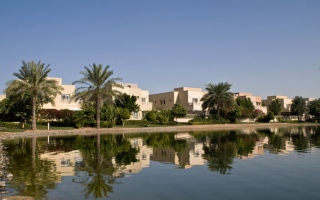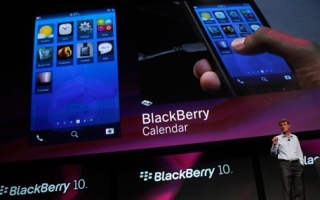- City Fajr Shuruq Duhr Asr Magrib Isha
- Dubai 04:27 05:45 12:20 15:47 18:49 20:07
Service levels at decent Dubai restaurants are not too bad. As you take your place at a table and before you’ve had a chance to scan at the menu, a waiter is likely to be at your service, filling your glass with the water that you will be drinking that evening, without you needing to ask.
But there’s a catch.
If you’re lucky, the restaurant may have served you locally sourced water. Even in that case, the bottle will cost multiple times more than what it does in a grocery store. Seldom will a 1.5-litre bottle of any kind of water be priced in single digits.
Castello, an Arabic-styled restaurant in Jumeirah serves two brands of water: Hildon and AquaFina, priced Dh18 and Dh12, respectively, for a 1.5-litre bottle. “We mark up the price per bottle,” acknowledges Obai Bouhassoun, General Manager of the restaurant. He admits that the same bottles can be purchased in the grocery store for much less.
A manager of another restaurant in Jumeirah adds: “I pay my bills. I maintain the cooler where the water is stored, pay the repair-man if it does not function, pay the worker who carries the water into the cooler and so on. I need to price my bottles at a higher rate; it is not really a source of profit.”
The mark-up on the water doesn’t seem to concern the restaurant, explains Obai, as the restaurant has to satisfy the supplier on its part. “We have a target. If we reach that target, we get a good deal with that supplier.”
The high-priced water bottles are mostly international branded. While local brands can be found on the menu for less than Dh10, it is the internationally branded water that hits the wallet.
Not every restaurant gives its customers the luxury of choice, something that frustrated the branding company MBLM to such an extent that it started a campaign ‘I Drink Local’. Spending a year asking food outlets and cafés whether they have local water, they listed the outlets’ top five reasons not to.
‘The bottle isn’t attractive, it doesn’t match our brand concept, we have special suppliers that prevent us from offering local water, margins are much lower with local water, and our customers prefer imported water’ were the most offered arguments.
“The supplier of internationally branded water offers us better deal than the local brands,” says Obai. “We get one free carton for every 10 cartons, and the same supplier delivers other drinks as well. Business-wise, it makes more sense for us to offer international brands of water.”
It angers B.R., an Indian resident who regularly asks for local water in restaurants. “They just do not have local water, although I would pay much less if they did. It is really frustrating.”
“It is mostly the price factor that makes people ask for locally produced water,” agrees the manager of the restaurant in Jumeirah. “People sometimes ask for a local brand just because it is cheaper, not because they like that brand more than the brand I have. I find that very cheap.”
Abdulaziz Bin Hathboor, Director of Consumer Protection, Department of Economic Development (DED) Dubai, said: “Restaurants are service providers, and not suppliers of foods and beverages as in the case of shops, groceries, or supermarkets, which sell products as per prevailing market prices. The consumer has the choice to accept the prices specified in a restaurant’s menu, which may depend on the quality of service and location of the premise.
“Restaurants are not obliged to offer locally or internationally produced water and they are free to keep only [one] brand of water,” he added. “It is up to the consumer to choose the restaurant that sells local products or imported ones.”
According to both the restaurant managers, customers rarely ever mention their preference or ask for a specific brand of water. “It may happen once a month,” says Obai. “People are generally satisfied with what we serve them, and nobody seems to have a specific preference for locally produced water.”
A poll ran by this website asked readers what brand of water they prefer to have on the table in a restaurant. Indeed, 24 per cent of readers said that they go with whatever is served, while 20 per cent opted for the cheapest option available. However, 44 per cent said they prefer locally produced water, while 12 per cent preferred internationally branded water.
The location of the restaurant also plays a role, Obai thinks. “We are in Jumeirah. In Bur Dubai, the water on the table may be a bit cheaper. But we can decide the price-tag we attach to the bottle. This is an open country. If you do not like it, you can go to another restaurant.”
Abdulaziz added: “The UAE is a free market and the Department of Economic Development does not dictate what to sell or how to sell as long as it is within the laws of the country.”
(Home page image courtesy Shutterstock)
ALSO READ:
Dubai’s Emaar bans 'party-renting' of villas after E24|7 highlights case

Woman gives birth to five babies in Dubai hospital
Two BlackBerry Z10 winners will be drawn today 
![]() Follow Emirates 24|7 on Google News.
Follow Emirates 24|7 on Google News.